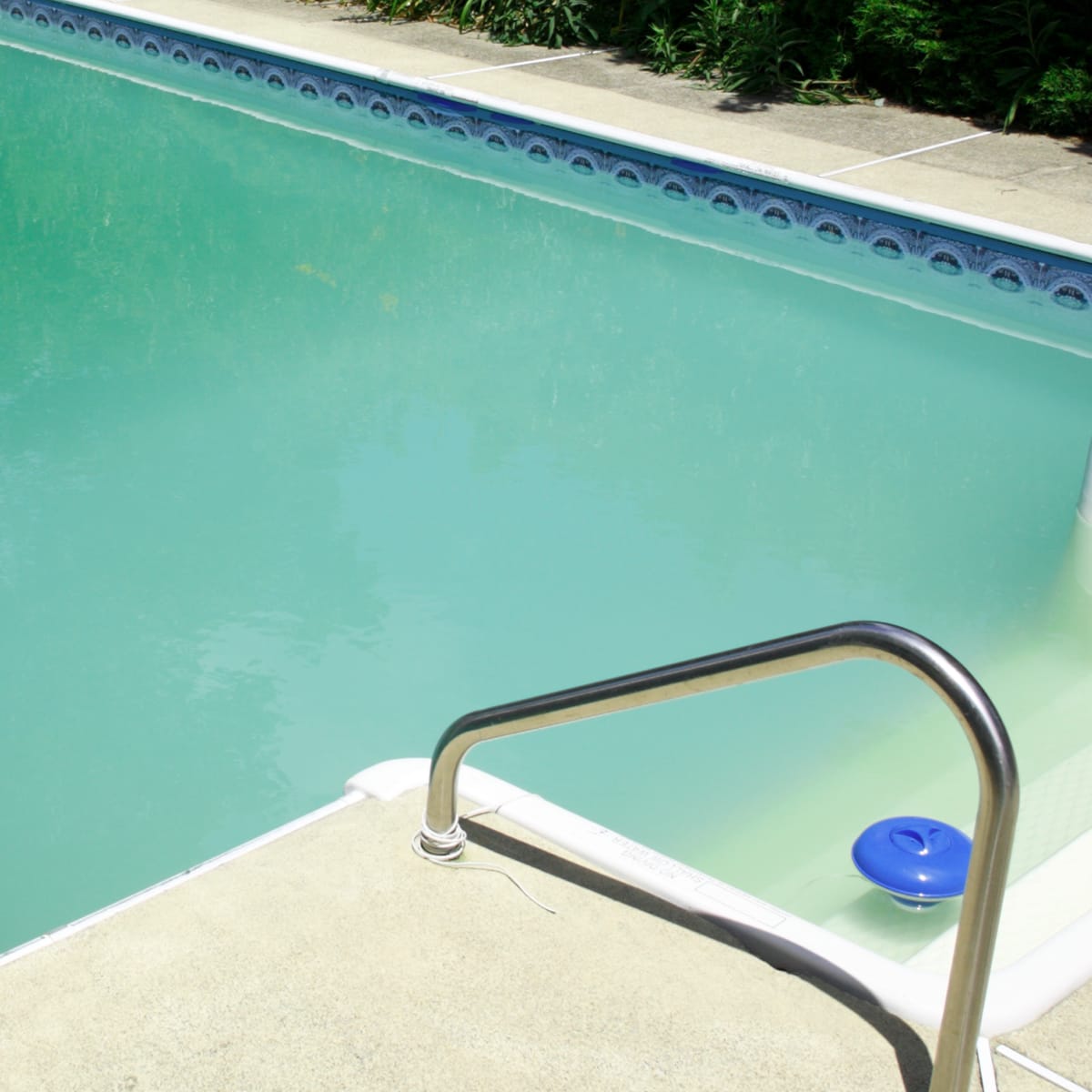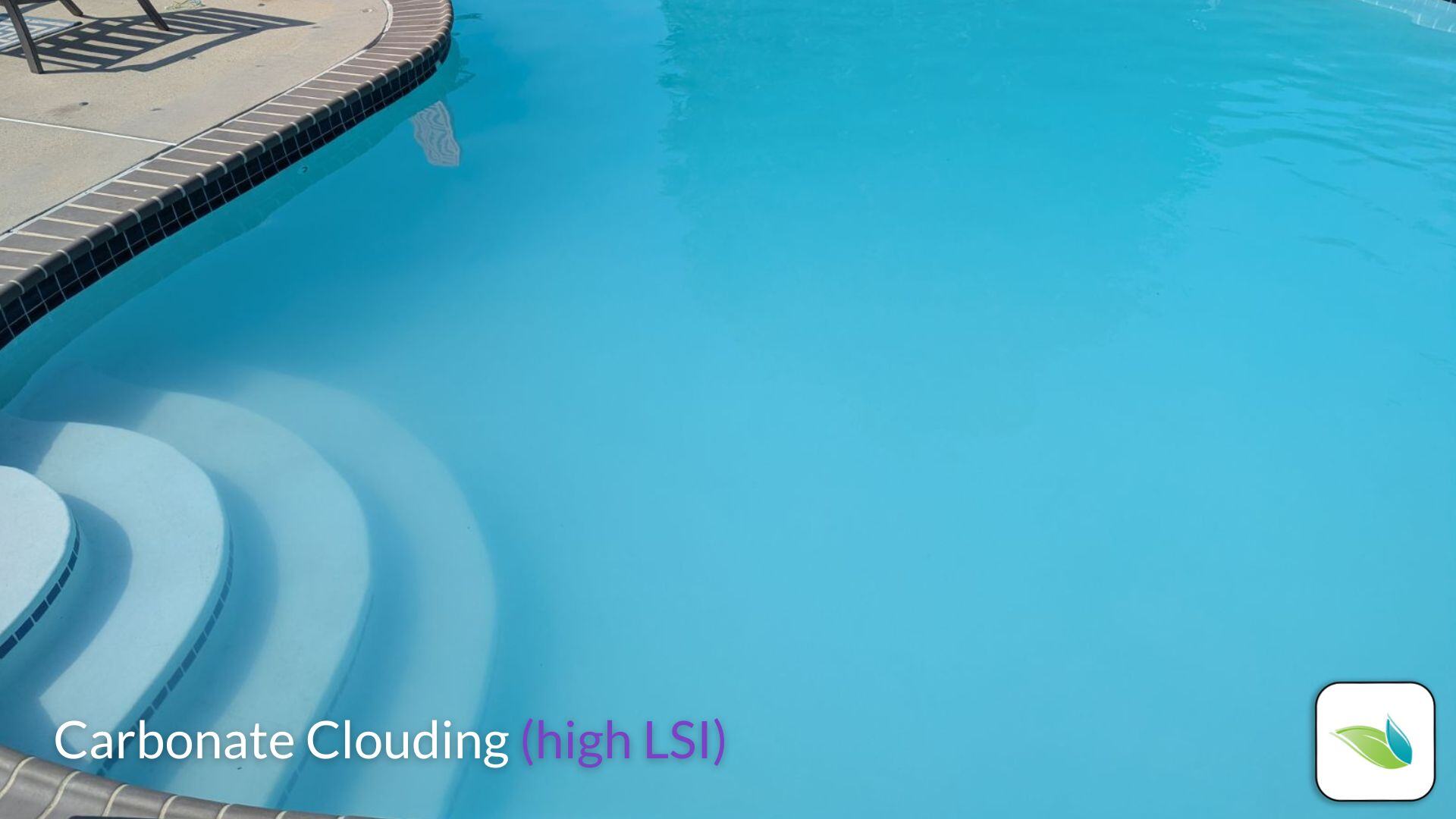Imagine stepping into your backyard, ready for a refreshing dip, only to find your pool water looking cloudy and uninviting. It’s frustrating, isn’t it?
You might be wondering why your pool water is not as clear as it used to be. Cloudy pool water can be a real nuisance, but understanding the reasons behind it is the first step to restoring that crystal-clear sparkle.
You deserve a pool that not only looks clean but feels clean, too. We’ll dive into the common causes of cloudy pool water and give you simple solutions to ensure your pool stays inviting. Stick around, because a clearer pool is just a few steps away!
Common Causes Of Cloudy Pool Water
Cloudy pool water is a common issue many pool owners face. Understanding the causes helps in maintaining a clear pool. Several factors contribute to cloudy pool water. Let’s explore these common causes.
Poor Filtration
Filtration plays a key role in keeping pool water clear. A malfunctioning filter can’t remove debris effectively. This leads to particles floating in the water. It’s essential to clean or replace the filter regularly. Ensure it’s working properly to maintain water clarity.
Imbalanced Chemicals
Proper chemical balance is vital for clear pool water. An imbalance can cause cloudiness. Test the water to check chemical levels. Ensure pH, chlorine, and alkalinity are in the right range. Correct imbalances promptly to prevent cloudy water.
Environmental Factors
Environmental elements can affect pool clarity. Leaves, dirt, and pollen can enter the pool. They cloud the water if not removed quickly. Regular cleaning and using a pool cover help mitigate this issue. Keep the pool surroundings clean to reduce debris.

Credit: hthpools.com
Filtration Issues
Cloudy pool water often stems from filtration issues. A pool’s filtration system is crucial. It helps keep the water clear and clean. If it fails, water turns cloudy. The main culprits? Dirty filters, inadequate pumping, and clogged skimmer baskets. These can disrupt the filtration process. Let’s dive deeper into each.
Dirty Filters
Filters trap dirt and debris. Over time, they get dirty. Dirty filters can’t work properly. They fail to remove particles from water. Regular cleaning is vital. Rinse or replace filters often. This ensures they function well. A clean filter keeps your pool sparkling.
Inadequate Pumping
Pumps circulate water through filters. They play a key role in filtration. If a pump is weak, water can’t move effectively. It leads to cloudy water. Check pump size and power. Make sure it’s suitable for your pool. Proper pumping keeps water clear and fresh.
Clogged Skimmer Baskets
Skimmer baskets collect leaves and debris. They prevent clogging in the filtration system. If skimmer baskets are clogged, water flow is hindered. Clean them frequently. Remove leaves and debris. This ensures smooth filtration. Clear baskets contribute to clear water.
Chemical Imbalances
Pool water often turns cloudy due to chemical imbalances. These imbalances disrupt the clarity of the water, causing frustration for pool owners. Understanding these chemical issues helps maintain a clear pool.
Incorrect Ph Levels
pH levels play a crucial role in pool water clarity. A balanced pH ranges between 7.2 and 7.8. Deviations can cause cloudiness. High pH levels make chlorine less effective, leading to murky water. Low pH levels can damage pool equipment. Regular testing and adjustments are vital.
Low Chlorine Levels
Chlorine is essential for sanitizing pool water. Low levels lead to bacteria and algae growth. This growth causes cloudy water. Consistent chlorine levels prevent these issues. Test the water weekly to ensure proper chlorine levels. Use stabilizers to maintain chlorine effectiveness.
High Calcium Hardness
Calcium hardness affects pool water clarity. High levels cause scaling and cloudiness. Scaling occurs on pool surfaces and equipment. Regular testing prevents calcium buildup. Adjusting calcium levels keeps the water clear. Use water softeners if necessary.
Environmental Factors
Environmental factors can turn your pool water cloudy. The outdoors influence your pool’s clarity. Understanding these factors helps maintain clear water. Let’s explore what makes pool water murky.
Debris And Leaves
Debris falls into pools, affecting water clarity. Leaves are a common culprit. They float on the surface and sink if not removed. This organic matter breaks down. It releases particles that cloud the water. Regular cleaning reduces debris buildup.
Algae Growth
Algae thrive in pools. Warm and sunny days promote their growth. Green or yellow patches signal an algae problem. Algae multiply quickly. They make pool water cloudy and unsightly. Proper chemical balance keeps algae in check.
Heavy Rainfall
Rain impacts pool water clarity. It introduces dirt and contaminants. Heavy rain can dilute chemicals. This affects the pool’s balance. After a storm, your pool may appear cloudy. Testing and adjusting chemicals restore clarity.
Preventative Measures
Keeping your pool water clear is essential for a refreshing swim. Cloudy water can be a nuisance and may indicate underlying issues. To ensure your pool remains crystal clear, preventative measures are crucial. By following simple steps, you can maintain a healthy pool environment.
Regular Maintenance
Regular maintenance is key to preventing cloudy pool water. Skim the surface daily to remove debris. Clean the pool walls and floor weekly to prevent algae growth. Regularly check and clean the pool pump and skimmer baskets. This helps in keeping the pool free from dirt and leaves.
Proper Chemical Testing
Testing the pool water regularly is essential. Use a reliable test kit to check pH, chlorine, and alkalinity levels. Keep the pH between 7.2 and 7.6. Maintain chlorine levels between 1 and 3 ppm. Balanced chemicals ensure clear water and prevent bacteria growth.
Effective Filtration Systems
A good filtration system is vital for clear pool water. Run the filter for at least 8 hours daily. Clean the filter regularly to maintain its efficiency. Replace the filter when necessary to ensure optimal performance. An effective filter removes impurities, keeping the water clean.
Effective Solutions
Cloudy pool water often results from imbalanced chemicals or poor filtration. Cleaning filters and adjusting pH levels can help. Regular maintenance ensures clear water and a safer swimming experience.
When pool water turns cloudy, it can be quite frustrating. You might be wondering if there’s a quick fix to restore the crystal-clear sparkle that makes a pool inviting. The truth is, effective solutions are at your fingertips. In this section, we’ll explore practical steps you can take to clear up that murky water and ensure your pool is in top condition.
Shock Treatment
Shocking your pool is like giving it a wake-up call. This process involves adding a large dose of chlorine to your pool to eliminate impurities. It’s especially effective after heavy rainfall or when your pool has been heavily used. Imagine coming home after a long day, eager for a swim, only to find the water foggy and uninviting. A shock treatment can be your hero, swiftly clearing up the mess. But don’t forget to test your water afterwards, ensuring chlorine levels are safe for swimming.
Filter Cleaning
Your pool filter works tirelessly to keep water clear. Over time, however, it can become clogged with debris, reducing its efficiency. Have you ever had a day planned around pool relaxation, only to be thwarted by cloudy water? Cleaning your filter regularly can prevent such disappointments. Consider setting a schedule—perhaps every month—to clean or replace your filter. This consistent care can keep your pool looking its best, ready for impromptu swims.
Algaecide Application
Algae might be lurking in your pool, causing that unwanted cloudiness. Applying algaecide can be a game-changer, tackling the root of the problem. Have you noticed how algae can quickly multiply, turning your pool into a less-than-appealing swamp? Algaecide is your ally in this battle. It targets and removes algae, restoring clarity to the water. But be cautious; overuse can lead to other issues, so follow the manufacturer’s instructions carefully. These solutions are effective, but consistency is key. Regular maintenance can prevent cloudiness from becoming a frequent issue. What method have you found most effective in keeping your pool clear? Share your thoughts and experiences; they might help someone else enjoy their pool more.
When To Seek Professional Help
Cloudy pool water often signals underlying issues requiring expert attention. Persistent cloudiness can stem from imbalanced chemicals or poor filtration systems. Professional help ensures your pool remains safe and clear, enhancing enjoyment.
When your pool water turns cloudy, it can be frustrating. You’ve tried everything you know, but the murkiness lingers. This is when you might need to consider calling in professional help. Sometimes, the issue goes beyond basic maintenance. Let’s explore some scenarios where a pro might be your best bet.
Persistent Cloudiness
You’ve balanced the pH, shocked the pool, and run the filter non-stop, yet the water remains cloudy. This stubborn cloudiness can be a sign of a deeper issue. Professionals can conduct a thorough diagnosis to identify the root cause. They have specialized tools and expertise to tackle problems that aren’t immediately apparent. If your pool water has been cloudy for more than a few days despite your efforts, it’s time to call in the experts. They can provide solutions that are not readily available to the average pool owner. Sometimes, a fresh set of eyes is all it takes to see what you might have missed.
Complex Chemical Issues
Balancing pool chemicals is often more art than science. Even if you’re meticulous, things can still go awry. Sometimes, chemical levels can interact in unexpected ways, leading to persistent cloudiness. Professionals have the experience to recognize these complex interactions and correct them effectively. Have you ever found yourself constantly adjusting chemicals with no improvement? A professional can quickly test and adjust chemical levels with precision. This can save you time, money, and frustration, ensuring your pool returns to its crystal-clear glory.
Filtration System Malfunctions
Your pool filter is the unsung hero of your pool system. But what happens when it fails? A malfunctioning filter can be a significant cause of cloudy water. If your filter isn’t operating efficiently, it can’t remove particles that cloud your water. Professionals can diagnose and repair filtration issues that you might not notice. They can also help you understand whether it’s a simple fix or if your system needs an upgrade. Is your filter system older than your kids? It might be time for a professional inspection to ensure everything runs smoothly. In the end, knowing when to seek professional help can save your pool and your sanity. Be proactive and don’t hesitate to call in experts when faced with persistent, complex, or mechanical issues. Your pool’s clarity—and your peace of mind—will thank you.

Credit: www.autopoolreel.com

Credit: blog.orendatech.com
Frequently Asked Questions
What Causes Pool Water To Become Cloudy?
Cloudy water often results from poor filtration. It might be due to algae, high pH, or imbalanced chemicals.
How Can I Clear Cloudy Pool Water?
Check and adjust chemical levels. Clean filters. Shock the pool with chlorine. This should help clear it.
Is Cloudy Pool Water Safe For Swimming?
Not always. Cloudy water can harbor bacteria or algae. Avoid swimming until it’s clear and tested safe.
How Do I Prevent Pool Water From Clouding?
Regularly test and balance chemicals. Clean filters. Ensure good circulation. This prevents cloudiness effectively.
Can Rain Make Pool Water Cloudy?
Yes, rain can alter chemical balance. It introduces debris and dirt. Test and adjust chemicals after heavy rain.
Conclusion
Cloudy pool water can be frustrating. But solutions are simple. Check your pool’s chemical balance regularly. Clean the filter often. Remove debris promptly. Consider professional help if needed. Maintaining clear water ensures a safe swimming environment. It also enhances the pool’s appearance.
Consistency is key to prevent cloudiness. Regular maintenance saves time and effort. Keep these tips handy. Enjoy a crystal-clear pool all season long.





